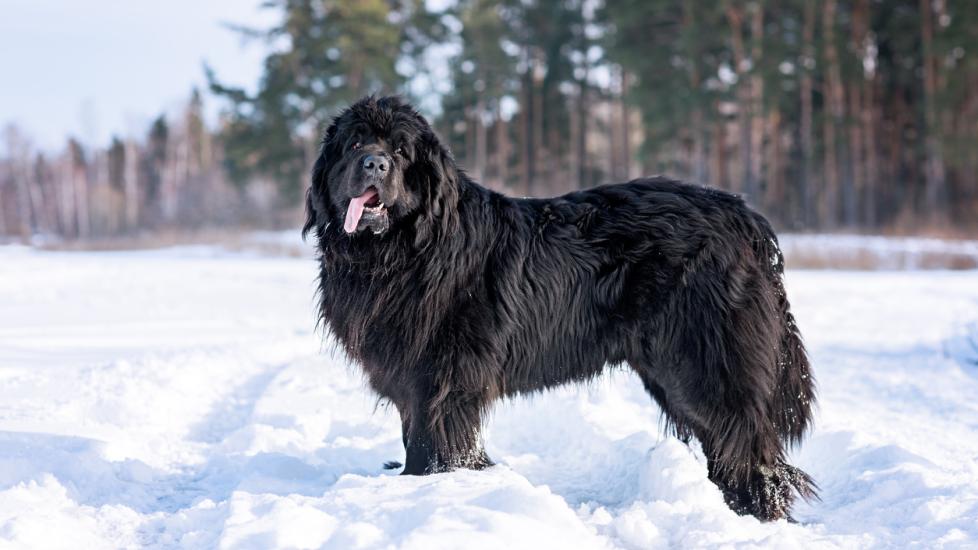Introduction:
The Newfoundland is a large working dog breed originally from the Canadian province of Newfoundland. Known for their strength, intelligence, and water-resistant coats, they excel at tasks such as pulling carts, lifeguarding, and search and rescue operations. They are also popular family pets due to their gentle nature with children.
Lifespan: 8 -10 years on average
Coat Length: Long and thick double coat that requires regular grooming to prevent matting
Alias(es): None commonly used
Height (adult male/female): 26 – 34 inches / 25 – 29 inches
Place of Origin: Canada
Body Size: Large; males weigh around 130–150 pounds, females about 100–120 pounds
Shedding Level: Moderate shedders; their heavy undercoat can cause significant seasonal shedding
Trainability: Intelligent dogs that respond well to training but may have a stubborn streak; early socialization and obedience training are recommended
Health Issues: Hip dysplasia, elbow dysplasia, eye problems, heart issues, and bloating are common health concerns among this breed
Temperament: Gentle, loyal, calm, and good-natured; they form strong bonds with their families and are patient with children
Energy Level: Low to moderate energy levels; they enjoy walks and swimming but do not require intense exercise daily
Special Considerations/Care: Their large size means they need plenty of space, both indoors and outdoors. They drool considerably and can be messy eaters. Proper diet and weight management are essential to avoid obesity, which can exacerbate joint problems. Regular brushing and professional grooming every few months help maintain their coat.
Suitable Owner/Living Environment: The Newfoundland thrives best in a home with an experienced owner who can handle a large dog and provide consistent leadership. A fenced yard is necessary to keep them contained, especially since they like to swim and could follow running water if given the opportunity.
Did You Know?: The Newfoundland has webbed feet, which enhance its swimming abilities. It was once used by fishermen to retrieve lost fishing gear or pull small boats through the water.
